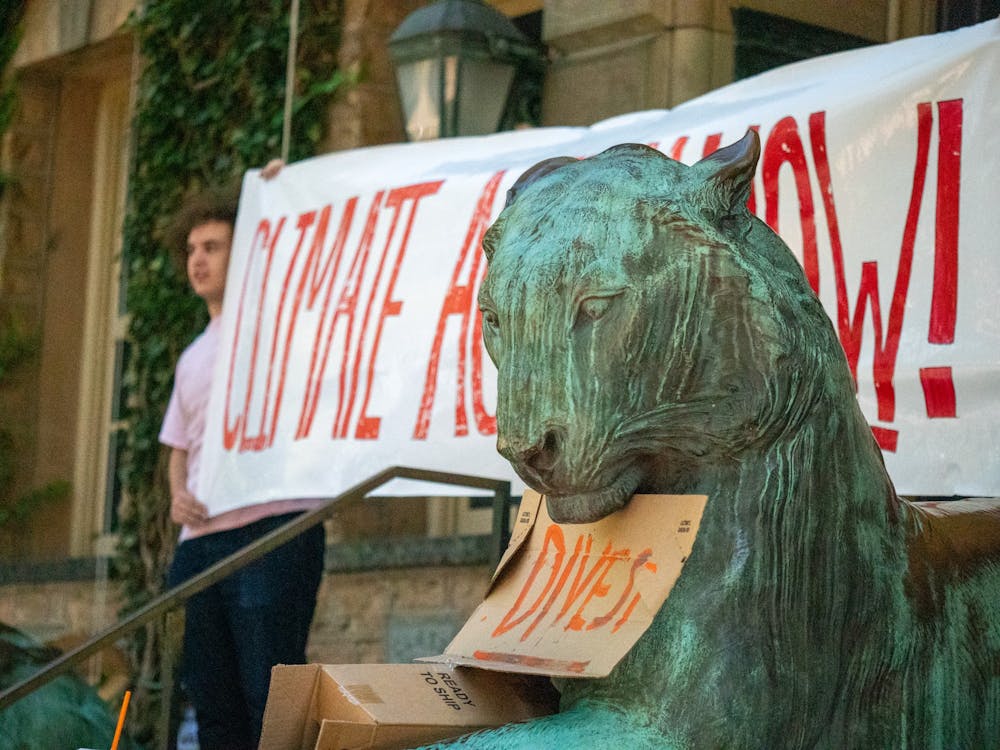A broad swath of researchers employed by the federal government are set to be forced out of their jobs — and Princeton can do something about it.
Across the board, President-elect Donald Trump plans to bring a hatchet to the federal civil service. He has spoken about slashing positions from key government departments, scattering federal agency headquarters across the country to trigger resignations, and potentially driving more federal employees out by weaponizing government institutions for his benefit.
Researchers in science-based departments will likely be among the first to be shown the door by the next Trump administration. Scientists at the National Institutes of Health (NIH), Food and Drug Administration, and Centers for Disease Control are in peril. All of these agencies are housed under the Department of Health and Human Services, which Trump plans to nominate Robert F. Kennedy Jr. to lead. Kennedy, for his part, wants to fire 600 NIH employees on day one and eliminate 12 of the institute’s 27 subdivisions. The Environmental Protection Agency (EPA) is in similar jeopardy — Trump has called on his planned EPA director Lee Zeldin to go full steam ahead with “deregulatory decisions” that have made environmental groups fear further job cuts to the environmental watchdog.
As these actors begin to dismantle public research infrastructure, Princeton must position itself as a sanctuary institution for displaced researchers.
Government researchers play an important role in our society. They produce the knowledge that informs government policy across issues, from studying the effectiveness of welfare programs to identifying chemicals that damage the ecosystems we inhabit. On a more fundamental level, government-led research results in accessible and credible knowledge that the public can use to understand the world in which we live. Public research advances truth, a core value of a free and fair society.
Trump doesn’t see it that way. In his effort to overwhelm truth with lies, he took massive swings at federal research in his first administration, dismissing government science, cutting budgets, and retaliating against scientists who spoke out during his first administration. In a word, a study by the House Committee on Space, Science, and Technology called Trump’s impact “devastating.”
The EPA stands out among agencies hit hard by the Trump administration and its anti-science agenda. The EPA froze hiring and offered new separation incentives to encourage people to leave under the last Trump presidency. As a result, a survey from the Union of Concerned Scientists found that more than one thousand employees left the EPA between early 2017 and late 2019, including over 500 environmental protection specialists — a 24 percent reduction — and over 100 environmental engineers — a seven percent reduction. Smaller EPA departments were decimated. Approximately one-third of all hydrologists, geologists, and statisticians left the agency.
This happened over and over under Trump. The Department of the Interior relocated its headquarters to Colorado, forcing employees to move if they wanted to work there. More than 80 percent chose not to move, resulting in an alarming brain drain in the organization. Two agencies under the U.S. Department of Education were forced to move to Kansas City, losing 75 percent of their employees because of the move.
These declines will likely pale in comparison to the cuts the next Trump administration will make to federal agencies. Trump has already suggested moving 100,000 federal employees — many of them researchers — out of D.C., risking even steeper increases in resignations this time around.
He also supports stripping civil service protections from tens of thousands of employees to make them easier to fire by implementing a procedure called Schedule F. The Heritage Foundation and America First Policy Institute, two contributors to Project 2025, have identified more than 50,000 civil servants from whom Trump could strip protections and threaten.
Furthermore, Vivek Ramaswamy and Elon Musk have threatened to launch deep reductions in government spending through their Department of Government Efficiency, which may lead to far more researchers having their positions terminated. If carried out, these proposals will leave thousands of talented and dedicated researchers without a job.
When the incoming political administration begins to attack public research, institutions like Princeton can and must defend it. The University’s responsibility to advance and protect free inquiry that serves the public will be more important than ever over the next four years. Princeton can fulfill that responsibility by becoming a sanctuary institution, opening its doors to the government researchers that Trump will throw out.

This leadership could take several forms. Princeton could establish a temporary center for “displaced” researchers fired by the Trump administration, allowing them to continue the inquiries they were pursuing while in government — especially researchers who experienced retaliation for speaking out against the administration. It could simply expand the number of scientists it hires, beginning to plan for this expansion now. It could adopt a more expansive plan of action by leading the creation of a multi-university effort to provide research job opportunities for these individuals.
In previous times of crisis, researchers have established similar programs. In the 1930s, a group of academics created an Emergency Committee in Aid of Displaced Foreign Scholars to harbor researchers fleeing Nazi Germany. The Committee helped displaced scholars find jobs in American colleges and universities, and its coordinators even paid their salaries through grants. While our current moment is not nearly as dire as this past crisis, the program offers a potential model from which Princeton could take inspiration. Indeed, Princeton, with its large endowment and connection to federal researchers, seems well-positioned to spearhead a similar program today.
These proposals are merely sketches. Much more thought from the University and its stakeholders is necessary before launching an effort to protect truth in this way. The most important thing is for the University to act proactively. In times like these, waiting to see what happens can lead one to act only when it is too late.
Trump is taking aim at government research as part of this effort. As a place committed to the pursuit of knowledge and with the resources to finance ambitious plans, Princeton is the right institution for the job of saving it.
Alex Norbrook is a junior in the History department and a staff Opinion writer for the ‘Prince.’ He can be reached at an4725[at]princeton.edu.









